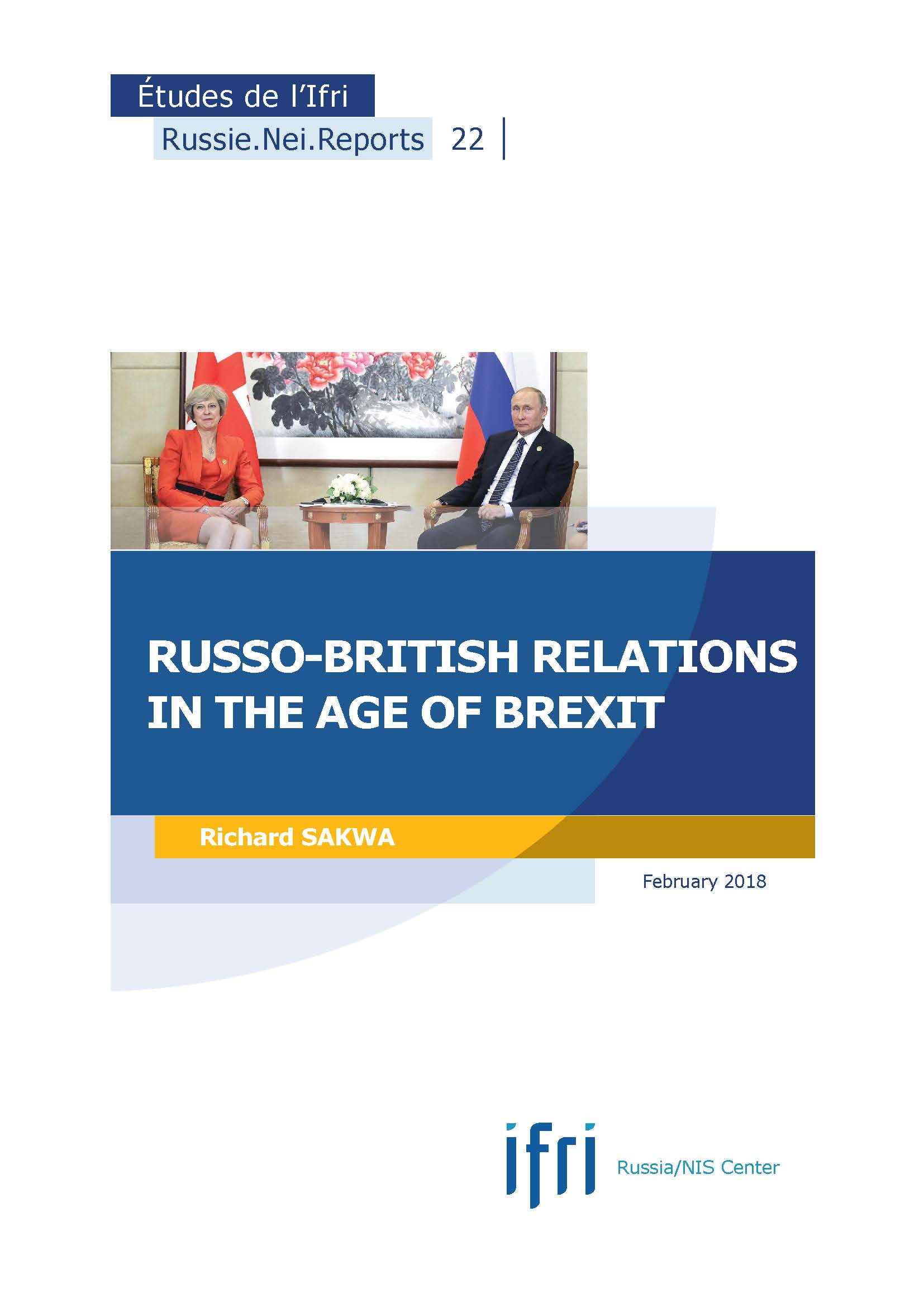Russo-British Relations in the Age of Brexit

The paper examines the reasons for the poor state of relations between Russia and the United Kingdom, providing a brief historical and political account of why relations have deteriorated. The various options facing the UK after Brexit, and within this framework the ambiguity of current British foreign policy and diplomacy, are outlined.
Unlike Germany and Japan after the war, and France’s reinvention after the Suez crisis as the leader of European integration and an independent power in Europe, the UK uniquely has been adrift. Its fundamental anchor was the “special relationship” with the United States, but commitment to traditional Atlanticism inhibited the development of Britain’s European identity and ultimately helped precipitate the country’s departure (Brexit) from the European Union. The vote to leave the EU in the referendum of 23 June 2016 has reinforced the UK’s commitment to the Atlantic security community. The absence of a ramified European identity is accompanied by the emergence of the UK as the most irreconcilable antagonist of Vladimir Putin’s Russia. This hostile relationship not only undermines the scope for diplomacy and creative ways of renewing bilateral ties, but exacerbates broader tensions and intensifies the military preparations for what some call a new Cold War. Nevertheless, there remain elements of a native pragmatism to British foreign policy, something that will be required if the country is to reinvent itself as “global Britain”. This pragmatism does not require the dilution of “values” or principles, but it does require smarter application.
Richard Sakwa is Professor of Russian and European Politics at the University of Kent and an Associate Fellow of Chatham House. He is a graduate of the London School of Economics (BA Hons) and the University of Birmingham (PhD).
Download the full analysis
This page contains only a summary of our work. If you would like to have access to all the information from our research on the subject, you can download the full version in PDF format.
Russo-British Relations in the Age of Brexit
Related centers and programs
Discover our other research centers and programsFind out more
Discover all our analysesRussia's Asia Strategy: Bolstering the Eagle's Eastern Wing
Among Russia’s strategic priorities, Asia traditionally played a secondary role compared to the West. In the mid-1990s, then Foreign Minister Yevgeny Primakov initiated a rapprochement with China and India. Then, in 2014, deteriorating relations between Russia and the West prompted Moscow to begin its “great pivot to the East”.
Kazakhstan After the Double Shock of 2022: Political, Economic and Military Consequences
The year 2022 represented a dual shock for Kazakhstan. In January, the country faced its most severe political crisis since independence, followed in February by Russia’s full-scale invasion of Ukraine, which cast uncertainty over the borders of post-Soviet states. These consecutive crises profoundly shaped Kazakhstan’s domestic and foreign policy.

How the Russian Army Changed its Concept of War, 1993-2022
The traditional and high-intensity war that has occurred in Ukraine since Russia decided to invade raises a key issue: did post-soviet Russian strategic thought really prepare Russia for waging this war?
Russia's Nuclear Deterrence Put to the Test by the War in Ukraine
From the outset of its “special military operation” (SVO) against Ukraine on February 24, 2022, Russia, which possesses one of the world’s largest nuclear arsenals, has adopted aggressive deterrence measures and a resolutely menacing rhetorical stance.











